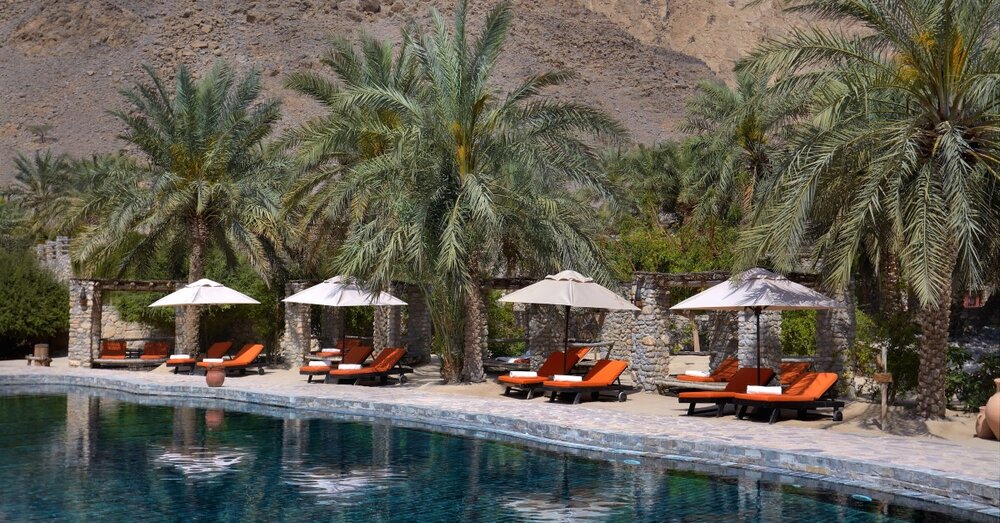Gates Hospitality founder Naim Maadad on how the single tourism visa will boost the GCC’s travel sector
Earlier this month, the GCC announced perhaps one of its most important updates yet: the unanimous approval of the Gulf common visa, which, once implemented, will enable visitors to use a single tourism visa to visit all six GCC countries: Bahrain, Kuwait, Oman, Qatar, Saudi Arabia, and the UAE.
While on the surface, the approval means that travellers will now require one piece of paper to explore the Gulf, in reality, it means an awful lot more. For a region with a deeply rooted tradition of welcoming guests, that’s been passed down through generations, it presents an opportunity to tell the diverse story of the GCC as a collective, showcasing its authentic experiences and sharing resources that benefit all.
Whether it’s the skyscrapers, luxury offerings or glitzy nightlife that the UAE has to offer, the rich heritage of destinations such as Oman, Qatar, Bahrain and Kuwait, or the exciting developments in Saudi Arabia, visits to any of these countries will no longer be mutually exclusive.
 Six Senses Zighy Bay
Six Senses Zighy Bay
Take, for example, the guests that we welcome at Six Senses Zighy Bay in Oman. While many guests fly into Dubai due to its proximity to the resort's location in the Musandam Peninsula, the necessity of separate visas to explore wider Oman and indeed further afield, has often proved to be a barrier for those with the appetite to explore.
Once the visa is introduced, it opens doors to the likes of Muscat and Salalah in Oman and destinations further afield in the GCC, with daily flights between gulf states operating out of both Muscat and Dubai.
Multi-centre Travel Itineraries
With an international focus on the investments and initiatives of Saudi, which is projected to have the fastest levels of growth in the region over the next decade, the whole region now has an opportunity to capitalise on the excitement that the projects bring. Whether it’s NEOM, the Red Sea Project, or the holy sites in Mecca and Medina that attract tourists, multiple destination trips will make wider travels a lot easier.
With the success of the World Cup in Qatar once again showcasing the region as a real player on the global events scene, it also gives the opportunity for the region to work together to host events across all six GCC countries.
Infrastructure projects such as Etihad rail, which will connect the UAE with both Oman and Saudi, continue to develop at a fast pace, and more will follow.
RELATED:
Comment: How apart'hotels are reshaping hospitality in the Middle East
Comment: Why two is better than one – the importance of partnerships
Comment: Don't stifle creative talent with brand guidelines
Commercial Opportunities
From an investment perspective, the visa changes will give global hospitality chains further confidence in investing in the GCC, all of which will no doubt be excited about the prospect of offering packages that combine the best of their properties across numerous states in the region.
Hospitality and residential projects worth a staggering US$1.9 trillion are currently under development across the Middle East, and the visa changes highlight the continued commitment to reaching 160 million annual tourists by 2030.
Aside from the positive impact that it will bring to the hospitality sector, the announcement also demonstrates something arguably more important, and that is the appetite for the region to work together in unity.
BUILD YOUR OWN TRAVEL BUSINESS. JOIN TRAVEL COUNSELLORS' NEXT EVENT TO FIND OUT HOW
Concerted Sustainability Efforts
The options are endless, but with COP28 being hosted in the UAE this year, and the region already making progress towards becoming more sustainable, working together to promote a green economy is perhaps the biggest opportunity of them all.
A chance to protect the planet for the future and to grow the economy – the World Bank has predicted that a green economy could increase GCC GDP to US$13trillion by 2050 – seems like a win for all.
As another forward move by local leadership, whether you are a GCC national or a resident, we should all be proud of initiatives like this and be excited about what’s to come. Ultimately, we are stronger when we are together.

_w=940_h=488_pjpg.jpg?v=4dfb827e)



_w=640_h=335_pjpg.jpg?v=4dfb827e)
_w=640_h=335_pjpg.jpg?v=4dfb827e)
_w=640_h=335_pjpg.jpg?v=4dfb827e)
_w=640_h=335_pjpg.jpg?v=4dfb827e)